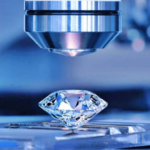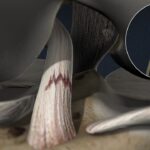What is gallbladder disease?
Gallbladder disease incorporates inflammation, contamination, stones or blockage of the gallbladder. The gallbladder is a sac situated under the liver. It stores and moves bile delivered in the liver. Bile helps with the assimilation of fat and is let out of the gallbladder into the upper small digestive tract in light of food (particularly fats). Kinds of gallbladder disease include:
- Cholecystitis (inflammation of the gallbladder)
- Gallstones
- Chronic acalculous gallbladder disease (in which the normal developments expected to discharge the gallbladder don’t function admirably)
- Gangrene or abscesses
- Growths of tissue in the gallbladder
- Congenital defects of the gallbladder
- Sclerosing cholangitis
- Tumors of the gallbladder and bile ducts
Symptoms
The mildest and most normal side effect of gallbladder disease is discontinuous pain called biliary colic. Commonly, a patient encounters a consistent holding or chewing pain in the upper right abdomen close to the rib confine, which can be severe and can transmit to the upper back. A few patients with biliary colic experience the pain behind the breastbone. Nausea or vomiting might happen.
Between 1% and 3 percent of individuals with suggestive gallstones foster inflammation in the gallbladder (intense cholecystitis), which happens when stones or ooze block the channel. The symptoms are like those of biliary colic however are more industrious and severe. They remember pain for the upper right abdomen that is severe and steady and may keep going for quite a long time. Pain habitually increments while drawing a breath. About 33% of patients have fever and chills. Nausea and vomiting might happen.
Chronic gallbladder disease includes gallstones and gentle inflammation. In such cases, the gallbladder might become scarred and firm. Symptoms of chronic gallbladder disease incorporate objections of gas, nausea and stomach uneasiness after feasts and chronic loose bowels.
Stones stopped in the normal bile channel can cause symptoms that are like those delivered by stones that cabin in the gallbladder, yet they may likewise cause:
- Jaundice
- Dark urine, lighter stools or both
- Rapid heartbeat and abrupt blood pressure drop
- Fever, chills, nausea and vomiting, with severe pain in the upper right abdomen
Diagnosis
-
Blood tests
-
Ultrasound and other imaging techniques
Treatment
Surgery might be justified to eliminate the gallbladder assuming the patient has gallstones or the gallbladder isn’t working regularly. More often than not this can be performed either laparoscopically (through little cuts) or with automated helped surgery, both as short term systems.
Relevant Content Search:
gallbladder disease |
gallbladder disease icd 10 |
gallbladder disease symptoms |
gallbladder disease in dogs |
symptoms of gallbladder disease |
signs of gallbladder disease |
chronic gallbladder disease |
chronic gallbladder disease symptoms |
gallbladder disease treatment |
which process can be primarily affected by gallbladder disease? |
gallbladder disease in dogs life expectancy |
22 symptoms of gallbladder disease |
gallbladder disease diet |
stages of gallbladder disease |
what is gallbladder disease |
heart disease and gallbladder disease are health risks associated with being overweight |
icd 10 code for gallbladder disease |
can gallbladder disease cause anxiety and depression |
acalculous gallbladder disease |
does gallbladder disease cause diarrhea |







